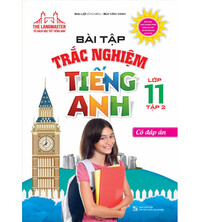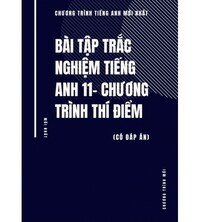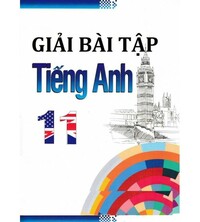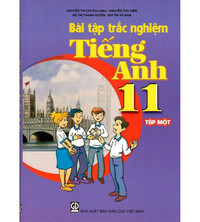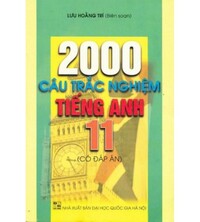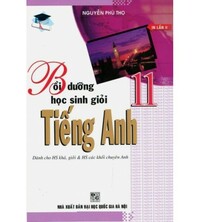6C. Listening - Unit 6. Hi-flyers - SBT Tiếng Anh 11 Friends Global
1. Read the Listening Strategy. Then complete the table with the headings below.2. Choose the correct linking word or phrase in each pair of the sentences. 3. Match sentences 1-5 with endings a-f. Use the linking words to help you. There is one extra ending.
Listening Strategy
Listening Strategy
When you listen to a more formal text, pay attention to linking words and phrases. These tell you how the pieces of information are connected: a contrast, a result, an example, emphasis, etc.
(Chiến lược lắng nghe
Khi bạn nghe một văn bản trang trọng hơn, hãy chú ý đến việc liên kết các từ và cụm từ. Chúng cho bạn biết các phần thông tin được kết nối với nhau như thế nào: độ tương phản, kết quả, ví dụ, sự nhấn mạnh, v.v.)
Bài 1
1. Read the Listening Strategy. Then complete the table with the headings below.
(Đọc Chiến lược nghe. Sau đó hoàn thành bảng với các tiêu đề bên dưới.)
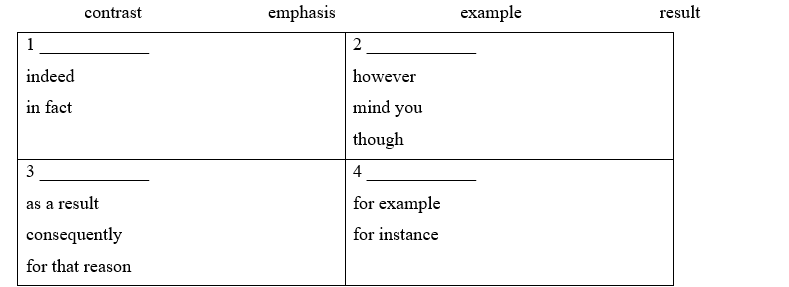
Phương pháp giải:
*Nghĩa của từ vựng
contrast (n): tương phản
emphasis (n): nhấn mạnh
example (n): ví dụ
result (n): kết quả
Lời giải chi tiết:
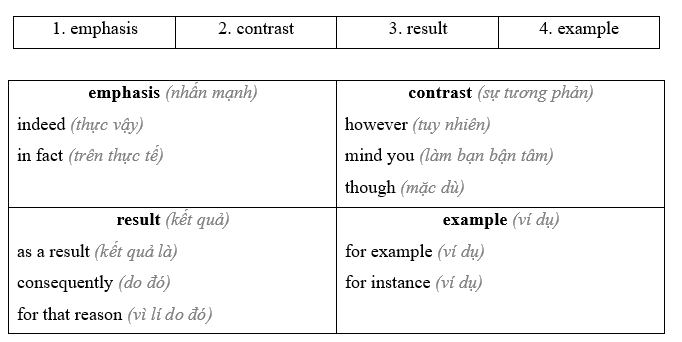
Bài 2
2. Choose the correct linking word or phrase in each pair of the sentences.
(Chọn từ hoặc cụm từ liên kết đúng trong mỗi cặp câu.)
1 She worked hard at school. Consequently, / Mind you, she did well in her exams.
2 The town has excellent leisure facilities. For instance, / However, there is a new sports centre.
3 The journey had been long and tiring. For example, / For that reason, they decided to get an early night.
4 The weather was extremely cold. Indeed, / However, it reached -12°C one night.
5 Ellie spent all afternoon at the beach. As a result, / Mind you, she got slightly sunburned.
6 The house is in a terrible condition – in fact, / though it would be impossible to live there
Lời giải chi tiết:

1 She worked hard at school. Consequently, she did well in her exams.
(Cô ấy học tập chăm chỉ ở trường. Nhờ đó, cô đã hoàn thành tốt bài thi của mình.)
2 The town has excellent leisure facilities. For instance, there is a new sports centre.
(Thị trấn có các tiện nghi giải trí tuyệt vời. Ví dụ, có một trung tâm thể thao mới.)
3 The journey had been long and tiring. For example, they decided to get an early night.
(Cuộc hành trình thật dài và mệt mỏi. Ví dụ, họ quyết định đi ngủ sớm.)
4 The weather was extremely cold. Indeed, it reached -12°C one night.
(Thời tiết rất lạnh. Quả thực, nó đã đạt tới -12°C trong một đêm.)
5 Ellie spent all afternoon at the beach. As a result, she got slightly sunburned.
(Ellie dành cả buổi chiều ở bãi biển. Kết quả là cô bị cháy nắng nhẹ.)
6 The house is in a terrible condition – in fact, it would be impossible to live there.
(Ngôi nhà ở trong tình trạng tồi tệ – thực tế là không thể sống ở đó được.)
Bài 3
3. Match sentences 1-5 with endings a-f. Use the linking words to help you. There is one extra ending.
(Ghép các câu từ 1-5 với đuôi từ a-f. Sử dụng các từ liên kết để giúp bạn. Có một đuôi bị thừa.)
1 She stayed up all night doing her homework. As a result, she ☐
2 They climbed the mountain in one day, though it ☐
3 She really disliked the film. In fact, she ☐
4 He applied for about twenty jobs. However, he ☐
5 He decided he wanted to be a journalist. Consequently, he ☐
a eventually managed to get in touch.
b sent his CV to all the national newspapers.
c left before the end.
d overslept and was late for school.
e was difficult and exhausting.
f only got two or three interviews.
Lời giải chi tiết:

1 - d
She stayed up all night doing her homework. As a result, she overslept and was late for school.
(Cô ấy đã thức cả đêm để làm bài tập về nhà. Kết quả là cô ngủ quên và đi học muộn.)
2 – e
They climbed the mountain in one day, though it was difficult and exhausting.
(Họ leo núi trong một ngày, mặc dù rất khó khăn và mệt mỏi.)
3 - c
She really disliked the film. In fact, she left before the end.
(Cô ấy thực sự không thích bộ phim. Trên thực tế, cô ấy đã rời đi trước khi kết thúc.)
4 - f
He applied for about twenty jobs. However, he only got two or three interviews.
(Anh ấy đã nộp đơn xin khoảng 20 công việc. Tuy nhiên, anh ấy chỉ nhận được hai hoặc ba cuộc phỏng vấn.)
5 – b
He decided he wanted to be a journalist. Consequently, he sent his CV to all the national newspapers.
(Anh quyết định muốn trở thành một nhà báo. Vì vậy, anh đã gửi CV của mình tới tất cả các tờ báo trong nước.)
Bài 4
4. You are going to listen to a radio interview about Margaret Fuller. First, read the sentences and circle the correct endings. Then listen and check your answers.
(Bạn sắp nghe một cuộc phỏng vấn trên đài phát thanh về Margaret Fuller. Đầu tiên, đọc các câu và khoanh tròn các kết thúc đúng. Sau đó nghe và kiểm tra câu trả lời của bạn.)
1 Margaret was an excellent student. In fact,
a by the age of six, she was translating Latin poetry into English.
b she always found Latin particularly difficult.
2 Boys often learned Latin, but girls learned different things: for instance,
a girls usually started school at a later age.
b how to behave in public.
3 She taught herself several languages and read great literature from around the world. Indeed,
a novels from Germany, France and Italy.
b Many people considered her the best-educated person on the East Coast.
4 At that time, there were certain jobs which people thought of as suitable for women: for example,
a being a teacher.
b Margaret was not interested in these jobs.
5 Some of the reviews she wrote were very negative. As a result,
a she was not always popular with novelists and poets of her time.
b she praised good writing when she came across it.
6 She definitely tried to make the world a better place. Mind you,
a she particularly wanted to help people who couldn’t help themselves.
b during her lifetime, she was actually best known for being bad-tempered!
Phương pháp giải:
Bài nghe
Host: Last week, we heard about Nellie Bly, one of the first female journalists to become really famous. This week, we’re going to talk about Margaret Fuller. She was born before Nellie Bly, wasn’t she?
Guest: Yes, that’s right. Margaret Fuller was born near the start of the nineteenth century – in 1810.
Host: In America?
Guest: Yes, in America. In Cambridge, which is a city on the East coast of the USA, near Boston. It’s the home of Harvard University, one of the most famous universities in the world.
Host: And did Margaret have a good education?
Guest: Yes, she did. Up to the age of nine, her education was at home, with her father. Margaret was an excellent student. In fact, by the age of six, she was translating Latin poetry into English.
Host: Was that unusual at the time?
Guest: Yes, it was – for a girl. Boys often learned Latin, but girls learned different things: for instance, how to behave in public. Boys were given great works of literature to read; girls were given romantic novels.
Host: So did she receive all of her education at home?
Guest: No, she didn’t. By the age of ten, she was at school. And eventually, she qualified as a teacher. But even as an adult, her education continued. She taught herself several languages and read great literature from the around world. Indeed, many people considered her the best-educated person on the East Coast. And that’s male or female!
Host: So, she had a hunger for education. What else was different about her? Why did she become so well known?
Guest: Well, she had very strong opinions about the role of women, and particularly about what jobs they could do. At that time, there were certain jobs which people thought of as suitable for women: for example, being a teacher. Margaret believed that a woman could do any job that a man could do.
Host: And what job did she do?
Guest: Well, after teaching, she became a journalist. She worked for the New York Tribune and became its first female editor. She also wrote reviews for it, as she was well known for having strong opinions about literature. Some of the reviews she wrote were very negative. As a result, she was not always popular with novelists and poets of her time.
Host: Did she only write about literature?
Guest: No, she was interested in many different topics. For example, she went into prisons and wrote about the conditions there. She wanted to make them better. She also wanted to change people’s attitudes to Native Americans and African Americans.
Host: So, she fought a lot of good causes.
Guest: Yes, she did. She definitely tried to make the world a better place. Mind you, during her lifetime, she was actually best known for being bad-tempered!
Host: Oh dear! Well, I suppose sometimes strong opinions can make you unpopular.
Tạm dịch
Người dẫn chương trình: Tuần trước, chúng tôi đã nghe nói về Nellie Bly, một trong những nữ nhà báo đầu tiên thực sự nổi tiếng. Tuần này chúng ta sẽ nói về Margaret Fuller. Cô ấy được sinh ra trước Nellie Bly phải không?
Khách: Vâng, đúng vậy. Margaret Fuller sinh gần đầu thế kỷ 19 – năm 1810.
Người dẫn chương trình: Ở Mỹ?
Khách: Vâng, ở Mỹ. Ở Cambridge, một thành phố ở bờ biển phía Đông Hoa Kỳ, gần Boston. Đây là ngôi nhà của Đại học Harvard, một trong những trường đại học nổi tiếng nhất thế giới.
Người dẫn chương trình: Và Margaret có được học hành tốt không?
Khách: Vâng, cô ấy đã có. Lên chín tuổi, cô học ở nhà, với bố. Margaret là một học sinh xuất sắc. Trên thực tế, khi mới 6 tuổi, cô đã dịch thơ Latinh sang tiếng Anh.
Người dẫn chương trình: Điều đó có bất thường vào thời điểm đó không?
Khách: Vâng, có – dành cho một cô gái. Con trai thường học tiếng Latin, nhưng con gái học những thứ khác: chẳng hạn như cách cư xử ở nơi công cộng. Các cậu bé được cho đọc những tác phẩm văn học hay; các cô gái được tặng những cuốn tiểu thuyết lãng mạn.
Người dẫn chương trình: Vậy cô ấy có được học tập đầy đủ ở nhà không?
Khách: Không, cô ấy không làm vậy. Đến năm mười tuổi, cô đã đến trường. Và cuối cùng, cô đã đủ tiêu chuẩn trở thành một giáo viên. Nhưng ngay cả khi trưởng thành, việc học của cô vẫn tiếp tục. Cô tự học một số ngôn ngữ và đọc những tác phẩm văn học hay từ khắp nơi trên thế giới. Quả thực, nhiều người coi cô là người được giáo dục tốt nhất ở Bờ Đông. Và đó là nam hay nữ!
Người dẫn chương trình: Vậy là cô ấy khao khát được học hành. Cô ấy còn có gì khác biệt nữa? Tại sao cô ấy lại trở nên nổi tiếng như vậy?
Khách: Chà, cô ấy có quan điểm rất mạnh mẽ về vai trò của phụ nữ, và đặc biệt là về những công việc họ có thể làm. Vào thời điểm đó, có một số công việc mà người ta cho là phù hợp với phụ nữ: ví dụ như giáo viên. Margaret tin rằng phụ nữ có thể làm bất kỳ công việc nào mà đàn ông có thể làm.
Người dẫn chương trình: Và cô ấy đã làm công việc gì?
Khách: À, sau khi dạy học, cô ấy đã trở thành nhà báo. Cô làm việc cho tờ New York Tribune và trở thành nữ biên tập viên đầu tiên của tờ này. Cô ấy cũng viết đánh giá cho nó vì cô ấy nổi tiếng là người có quan điểm mạnh mẽ về văn học. Một số đánh giá cô viết rất tiêu cực. Kết quả là không phải lúc nào bà cũng được các tiểu thuyết gia và nhà thơ cùng thời yêu thích.
Người dẫn chương trình: Cô ấy chỉ viết về văn học thôi phải không?
Khách: Không, cô ấy quan tâm đến nhiều chủ đề khác nhau. Ví dụ, cô ấy vào tù và viết về điều kiện ở đó. Cô muốn làm cho chúng tốt hơn. Cô cũng muốn thay đổi thái độ của mọi người đối với người Mỹ bản địa và người Mỹ gốc Phi.
Người dẫn chương trình: Vì vậy, cô ấy đã đấu tranh rất nhiều vì mục đích tốt đẹp.
Khách: Vâng, cô ấy đã làm vậy. Cô ấy chắc chắn đã cố gắng làm cho thế giới trở thành một nơi tốt đẹp hơn. Xin lưu ý bạn, trong suốt cuộc đời của mình, cô ấy thực sự nổi tiếng là người nóng tính!
Chủ nhà: Ôi trời! Chà, tôi cho rằng đôi khi những quan điểm mạnh mẽ có thể khiến bạn không được ưa chuộng.
Lời giải chi tiết:

1 Margaret was an excellent student. In fact,
(Margaret là một học sinh xuất sắc. Trên thực tế,)
a by the age of six, she was translating Latin poetry into English.
(Khi lên sáu tuổi, cô đã dịch thơ tiếng Latinh sang tiếng Anh.)
b she always found Latin particularly difficult.
(cô ấy luôn thấy tiếng Latin đặc biệt khó khăn.)
Thông tin: “by the age of six, she was translating Latin poetry into English.”
(Lúc 6 tuổi, cô ấy đã dịch thơ tiếng Latinh sang tiếng Anh.)
=> Chọn a
2 Boys often learned Latin, but girls learned different things: for instance,
(Con trai thường học tiếng Latin, nhưng con gái học những thứ khác nhau: ví dụ,)
a girls usually started school at a later age.
(những bé gái thường bắt đầu đi học ở độ tuổi muộn hơn.)
b how to behave in public.
(cách cư xử nơi công cộng)
Thông tin: “Boys often learned Latin, but girls learned different things: for instance, how to behave in public.”
(Con trai thường học tiếng Latin, nhưng con gái học những thứ khác: ví dụ như cách cư xử ở nơi công cộng.)
=> Chọn b
3 She taught herself several languages and read great literature from around the world. Indeed,
(Cô ấy tự học một số ngôn ngữ và đọc những tác phẩm văn học hay từ khắp nơi trên thế giới. Thực vậy,)
a novels from Germany, France and Italy.
(cuốn tiểu thuyết từ Đức, Pháp và Ý.)
b Many people considered her the best-educated person on the East Coast.
(Nhiều người coi cô là người được giáo dục tốt nhất ở Bờ Đông.)
Thông tin: “Indeed, many people considered her the best-educated person on the East Coast.”
(Quả thực, nhiều người coi cô ấy là người được giáo dục tốt nhất ở Bờ Đông.)
=> Chọn b
4 At that time, there were certain jobs which people thought of as suitable for women: for example,
(Vào thời điểm đó, có một số công việc mà người ta cho là phù hợp với phụ nữ: ví dụ:)
a being a teacher.
(một giáo viên.)
b Margaret was not interested in these jobs.
(Margaret không quan tâm đến những công việc này.)
Thông tin: “At that time, there were certain jobs which people thought of as suitable for women: for example, being a teacher.”
(Vào thời điểm đó, có một số công việc mà mọi người cho là phù hợp với phụ nữ: ví dụ như làm giáo viên.)
=> Chọn a
5 Some of the reviews she wrote were very negative. As a result,
(Một số đánh giá cô viết rất tiêu cực. Kết quả là,)
a she was not always popular with novelists and poets of her time.
(không phải lúc nào bà cũng được các tiểu thuyết gia và nhà thơ cùng thời yêu thích.)
b she praised good writing when she came across it.
(Cô ấy khen ngợi bài viết hay khi cô ấy xem được nó.)
Thông tin: “Some of the reviews she wrote were very negative. As a result, she was not always popular with novelists and poets of her time.”
(Một số đánh giá cô ấy viết rất tiêu cực. Kết quả là không phải lúc nào bà cũng được các tiểu thuyết gia và nhà thơ cùng thời yêu mến)
=> Chọn a
6 She definitely tried to make the world a better place. Mind you,
(v)
a she particularly wanted to help people who couldn’t help themselves.
(cô ấy đặc biệt muốn giúp đỡ những người không thể tự giúp mình.)
b during her lifetime, she was actually best known for being bad-tempered!
(Trong suốt cuộc đời của mình, cô ấy thực sự nổi tiếng là người xấu tính!)
Thông tin: “Mind you, during her lifetime, she was actually best known for being bad-tempered!”
(Hãy nhớ rằng, trong suốt cuộc đời của mình, cô ấy thực sự nổi tiếng là người nóng tính!)
=> Chọn b
Bài 5
5. Listen again. Are the sentences true (T) or false (F)?
(Lắng nghe một lần nữa. Các câu này đúng (T) hay sai (F)?)
1. Margaret Fuller was educated both at home and at school.
2 In those days, most girls were expected to read great works of literature
3 She worked as a teacher before she became a journalist.
4 She didn't become editor of the New York Tribune because she was a woman.
5 She reviewed novels and poetry for the New York Tribune.
6 As a journalist, she took an interest in groups of people whose lives were difficult.
Lời giải chi tiết:

1. Margaret Fuller was educated both at home and at school.
(Margaret Fuller được giáo dục ở nhà và ở trường.)
Thông tin: “Up to the age of nine, her education was at home, with her father. Margaret was an excellent student.”
(Cho đến năm 9 tuổi, cô ấy học ở nhà, với bố. Margaret là một học sinh xuất sắc.)
=> Chọn True
2 In those days, most girls were expected to read great works of literature.
(Vào thời đó, hầu hết các cô gái đều phải đọc những tác phẩm văn học hay.)
Thông tin: “Boys were given great works of literature to read; girls were given romantic novels.”
(Các cậu bé được cho đọc những tác phẩm văn học hay; các cô gái được tặng những cuốn tiểu thuyết lãng mạn.)
=> Chọn False
3 She worked as a teacher before she became a journalist.
(Cô ấy làm giáo viên trước khi trở thành nhà báo.)
Thông tin: “Well, after teaching, she became a journalist.”
(sau khi dạy học, cô ấy đã trở thành nhà báo.)
=> Chọn True
4 She didn't become editor of the New York Tribune because she was a woman.
(Cô ấy không trở thành biên tập viên của tờ New York Tribune vì cô ấy là phụ nữ.)
Thông tin: “She worked for the New York Tribune and became its first female editor.”
(Cô ấy làm việc cho tờ New York Tribune và trở thành nữ biên tập viên đầu tiên của tờ này.)
=> Chọn False
5 She reviewed novels and poetry for the New York Tribune.
(Cô ấy bình luận tiểu thuyết và thơ cho tờ New York Tribune.)
Thông tin: “She also wrote reviews for it, as she was well known for having strong opinions about literature.”
(Cô ấy cũng viết bài phê bình cho cuốn sách vì cô ấy nổi tiếng là người có quan điểm mạnh mẽ về văn học.)
=> Chọn True
6 As a journalist, she took an interest in groups of people whose lives were difficult.
(Là một nhà báo, cô quan tâm đến những nhóm người có cuộc sống khó khăn.)
Thông tin: “she was interested in many different topics. For example, she went into prisons and wrote about the conditions there. She wanted to make them better.”
(cô ấy quan tâm đến nhiều chủ đề khác nhau. Ví dụ, cô ấy vào tù và viết về điều kiện ở đó. Cô ấy muốn làm cho chúng tốt hơn.)
=> Chọn True
Search google: "từ khóa + timdapan.com" Ví dụ: "6C. Listening - Unit 6. Hi-flyers - SBT Tiếng Anh 11 Friends Global timdapan.com"

